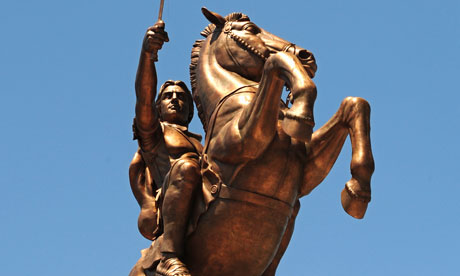Wikipedia: Paul Anthony Cartledge is the first A. G. Leventis Professor of Greek Culture at Cambridge University, having previously held a personal chair in Greek History at Cambridge.
Below is an excerpt from Paul Cartledge's book, "Alexander the Great." Vintage: 2005. Pg. 192-93.
It seems that, like most of the Achaemenids, Alexander sought in general to act on the principle of invisibility. This secret of empire (as Tacitus might have called it) was most succinctly expressed by a British Viceroy of India in 1879: 'It may not be flattering to our amour propre but I feel sure I am right when I say that the less the Afghans see of us, the less they dislike us.' This is probably applicable universally to empires. In other words, so long as efficient tribute collection and secure political control were not impaired, Alexander did not interfere with local systems of law, religion or culture. Indeed, as we have seen, he seems positively to have respected the customs of other peoples, quite unlike most of his fellow-countrymen.
Official religion, for example, was a highly sensitive issue. The Persian Kings had consciously and openly placed themselves under the special protection of the Iranian divinity Ahura Mazda, following the lead of his prophet Zoroaster. But they had not imposed Zoroastrianism outside Iran. Likewise, Alexander thought of himself as a follower, even a son, of Ammon or Zeus, but he did not try to convert the Iranians to Graeco-Macedonian polytheistic beliefs.
